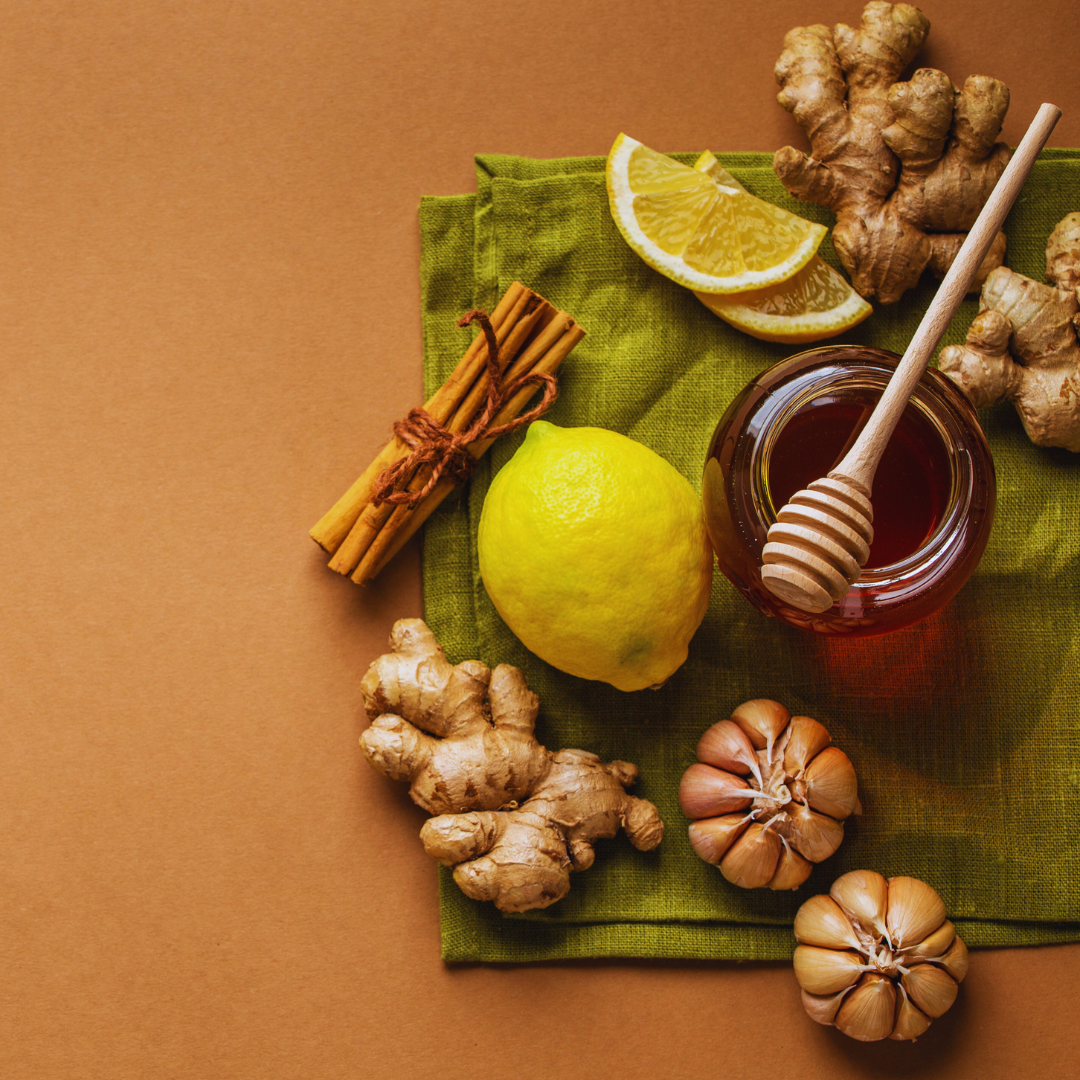When the cold and flu season arrives, many seek natural ways to alleviate symptoms and promote recovery. Effective cold and flu home remedies can help ease discomfort and support the body’s healing processes without immediate reliance on over-the-counter medications. From soothing teas to steam inhalation, various strategies can make a significant difference.
People often turn to household ingredients to combat common cold symptoms. Ingredients like honey, ginger, and garlic have long been recognized for their health benefits. These remedies not only offer relief but also empower individuals to take charge of their health during sickness.
The effectiveness of these home remedies can vary based on individual responses, yet they often provide a sense of comfort and support. Implementing these strategies can lead to a more manageable illness, allowing individuals to resume their daily lives more swiftly.
Understanding Colds and Flu
Infectious agents such as viruses cause both colds and flu, leading to similar yet distinct symptoms. While both illnesses affect the upper respiratory system, recognizing their differences is key to managing symptoms effectively.
Symptoms of Cold and Flu
Cold symptoms typically include a runny or stuffy nose, sore throat, sneezing, and mild fatigue. These symptoms gradually develop and are generally mild.
Flu symptoms are more severe and can include high fever, chills, body aches, and significant fatigue. The flu may also lead to complications such as pneumonia. The onset of flu symptoms is often sudden, contrasting with the gradual development of a cold.
Table of Symptoms:
|
Symptom |
Cold | Flu |
|
Runny/Stuffy Nose |
Common | Rare |
| Sore Throat | Common |
Sometimes |
| Fever | Rare |
Common |
|
Body Aches |
Mild | Severe |
| Fatigue | Mild |
Severe |
How Viruses Cause Illness
Viruses responsible for colds, primarily rhinoviruses, infiltrate the upper respiratory tract. They replicate in the epithelial cells, triggering an immune response that leads to inflammation and typical cold symptoms.
Influenza viruses, belonging to the Orthomyxoviridae family, can infect the lungs as well. This can result in more intense symptoms as the body fights a stronger viral invasion. The flu virus can further mutate, creating challenges in developing effective vaccines each year.
Both viruses spread easily through respiratory droplets, emphasizing the importance of hygiene measures in prevention. Keeping hands clean and avoiding close contact with infected individuals can help mitigate the risk of transmission.
Natural Remedies for Relief
Natural remedies can help alleviate symptoms of cold and flu, offering comfort and support during illness. These remedies utilize common ingredients known for their soothing properties and benefits.
Honey and Lemon
Combining honey and lemon creates a soothing mixture ideal for sore throats and cough relief. Honey has natural antibacterial and antiviral properties. It can also soothe the throat and reduce coughing.
Lemon is rich in vitamin C, which may boost the immune system. Mixing two tablespoons of honey with the juice of half a lemon in a cup of warm water creates a tasty drink.
This drink can be consumed several times a day for symptom relief. Adding ginger enhances the flavor and provides additional anti-inflammatory benefits.
Garlic and Echinacea
Garlic possesses natural antiviral and antimicrobial properties, making it a valuable remedy during cold and flu season. Consuming crushed garlic may help boost the immune system and fight off infections.
Echinacea, often used in herbal supplements, is believed to reduce the duration and severity of colds. Many people take it in tea or capsule form.
A popular preparation includes steeping crushed garlic in hot water with echinacea. This combination creates a potent brew that can be consumed daily to help alleviate symptoms and support recovery.
Herbal Teas and Hot Liquids
Herbal teas are an effective way to provide hydration and warmth. Varieties such as peppermint, chamomile, and ginger tea are particularly beneficial.
Peppermint tea can relieve congestion, while chamomile provides relaxation, promoting better sleep. Ginger tea is known for its anti-inflammatory properties and can help soothe a sore throat.
Hot liquids can help ease nasal congestion and maintain hydration. A hot toddy, which includes hot water, honey, and lemon, is another comforting option. Staying hydrated supports the body’s ability to heal and fight off illness.
Preventive Measures and Immune Support
Maintaining a strong immune system and preventing illness involves several key practices. Focus on proper nutrition, hydration, and lifestyle changes to support overall health and immune function.
Nutrition and Hydration
A balanced diet plays a crucial role in enhancing immune health. Including a variety of fruits and vegetables, especially citrus fruits and berries, provides essential vitamins and antioxidants. Foods rich in probiotics, like yogurt, can also benefit gut health, which is linked to immune function.
Staying hydrated is equally important. Water supports cellular functions and helps in the transportation of nutrients. Aim for at least 8 glasses of water daily, adjusting for conditions like exercise or heat. Herbal teas and broths can also be beneficial for hydration.
Vitamin C and Zinc Supplementation
Vitamin C is known for its role in immune support. Citrus fruits, strawberries, and bell peppers are excellent sources. Supplementation can be considered if dietary intake is insufficient, especially during colder months when colds are more common.
Zinc is another key nutrient for immune function. It can be found in foods like meat, beans, and nuts. Zinc lozenges may provide additional support when feeling unwell. Adequate zinc intake contributes to the development and function of immune cells.
Lifestyle Changes for Immunity
Incorporating regular exercise into one’s routine can bolster the immune system. Moderate physical activity has been associated with improved immune response. Aim for at least 150 minutes of moderate exercise weekly.
Adequate rest is critical for maintaining a robust immune system. Aim for 7-9 hours of quality sleep per night. Sleep deprivation can lead to decreased immune function. Stress reduction techniques, such as mindfulness or yoga, also help in maintaining a strong immune response.
Symptomatic Treatments and Comfort Measures
When dealing with cold and flu symptoms, finding ways to alleviate discomfort is essential. Effective treatments include steam inhalation, nasal congestion relief methods, and pain and fever management. These strategies can significantly enhance comfort and promote recovery.
Steam Inhalation and Humidifiers
Steam inhalation provides immediate relief for nasal congestion and throat irritation. It works by loosening mucus and soothing inflamed airways. Adding menthol to the water may enhance the benefits of steam inhalation.
Using a humidifier throughout the day can maintain moisture in the air, preventing dry throat and nasal passages. Keeping humidity levels between 30% and 50% is ideal. This approach can help alleviate cough symptoms and improve overall respiratory comfort.
For those seeking targeted relief, a neti pot or saline spray can complement steam inhalation. Both methods help irrigate nasal passages, clearing congestion and providing added moisture.
Nasal Congestion Relief
Effective nasal congestion relief can improve breathing and reduce discomfort. Saline solutions, either homemade or store-bought, are recommended for this purpose. A saline spray can immediately relieve congestion by moisturizing dry nasal passages.
Nasal irrigation with a neti pot helps flush out mucus and allergens. This method involves using salt water to rinse the nasal cavity, leading to clearer breathing. Regular use can significantly reduce congestion symptoms.
Additionally, using a warm compress on the face can ease sinus pressure. Applying heat to the sinuses promotes circulation and provides immediate comfort to sore areas.
Pain and Fever Management
Managing pain and fever is crucial during cold and flu illnesses. Over-the-counter medications such as acetaminophen or ibuprofen can effectively reduce fever and alleviate aches. These medications target pain by blocking certain chemicals in the brain.
For sore throats, gargling with warm salt water offers soothing relief. This simple solution can reduce swelling and kill bacteria. Additionally, staying well-hydrated with fluids helps thin mucus and soothes the throat.
Honey can serve as a natural cough suppressant. Mixing it with warm water or herbal tea can significantly relieve cough and irritation. It provides a comforting effect while promoting hydration.


